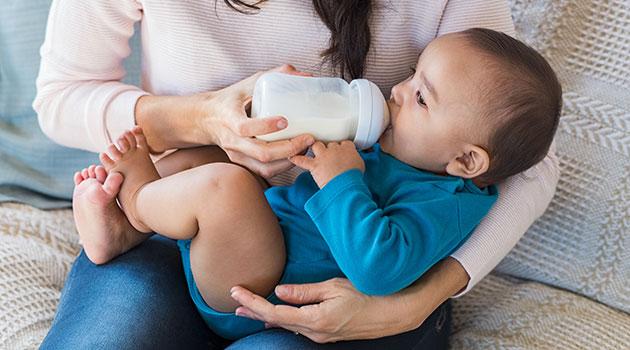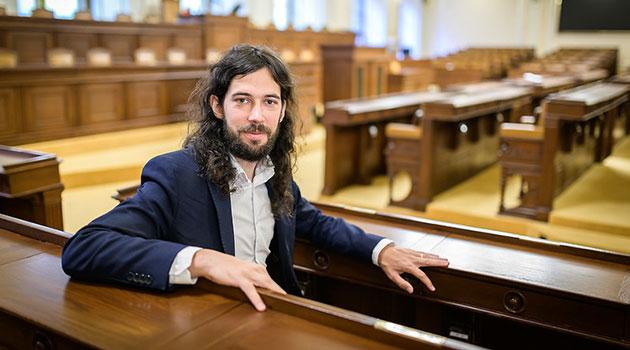Czech MPs abolish infant institutions and raise remuneration for foster parents, bill now heads to Senate

The remuneration paid by the Czech state to foster parents is apparently going up and will be based on the minimum wage, and the per-child state contribution to shelters that provide temporary care to young children will also be increased. The Government’s bill on the social and legal protection of children was approved by the Chamber of Deputies on 6 August by 99 of the 113 MPs present.
A group of legislators led by Pirate Party member MP Olga Richterová had proposed amendments to the bill which mean the lower house has now practically abolished “infant institutions” by setting an age limit on children’s institutional care. Senators will now receive the bill for assessment.
It was the abolition of infant institutions that sparked the broadest debate in the lower house. “Institutions are harmful to very young children,” Richterová asserted.
Czech Government Human Rights Commissioner Helena Válková (ANO) also said she believed the time had come for children under three to no longer be placed in institutional facilities in the Czech Republic. She emphasized that the bill provides sufficient time to prepare the change and make sure that infants living with disabilities and siblings under three will not remain without aid.
Communist MPs spoke most frequently against closing the infant institutions. According to MP Hana Aulická Jírovcová (Communist Party of Bohemia and Moravia – KSČM), institutonal facilities are, in some cases, the last option for the care of young children.
The Communist Party MP also asserted that there are not enough high-quality foster caregivers in the Czech Republic to absorb the number of children under three needing care. She also called the attempt to end infant institutions a populist move ahead of the autumn elections.
In votes held on different parts of the package, the Chamber of Deputies supported a series of amendments on children’s institutional care submitted by the group of MPs around Richterová, despite the Social Committee in the lower house opposing the bill. Czech Foreign Minister Jakub Kulhánek appeared in the Chamber of Deputies on behalf of Labor and Social Affairs Minister Jana Maláčová (both from the Czech Social Democratic Party – ČSSD) to support those amendments to the bill.
The Foreign Minister said he believes the gradual transformation of foster care for children under three is feasible. The adopted regulation, proposed by MP Petr Dolínek (ČSSD) and MP Aleš Juchelka (ANO), says the amount of foster parents’ remuneration will depend on the minimum wage, on the number of children being cared for, and on the state of the children’s health.
In the case of children living with disabilties, the foster parent remuneration will be higher. The basic remuneration for caring for one healthy child would be equivalent to the minimum wage.
For foster parents providing care on an immediate, temporary basis, the basic remuneration would be 1.8 times the minimum wage. If a child is being provided foster care by relatives, they will receive a new, non-taxed benefit called a foster care allowance instead of remuneration, according to an approved amendment to the bill.
The amount of the foster care allowance would depend on the subsistence level of the caregiver, on whether that relative already has a legal maintenance obligation to the child, and on whether the child is physically disabled. The per-child contribution for temporary shelters will grow, according to the proposed scheme, from CZK 22 800 [EUR 900] monthly to CZK 36 000 [EUR 1 400] monthly.
The cabinet had originally proposed raising the contribution to CZK 30 000 [EUR 1 200] monthly, but MP Jan Bauer (Civic Democratic Party – ODS) pushed for the higher increase. Despite the Foreign Minister and the lower house’s Social Committee supporting the idea, the Chamber of Deputies rejected a proposal from MP Karla Šlechtová (ANO) that would have allowed a child to be entrusted to the joint foster care of two people who are not each other’s spouses.
In her justification for the proposal, Šlechtová said such couples could be registered partners, people living in unmarried cohabitation, or two people not living in the same household, such as two persons who are related to each other or divorced foster parents. The Chamber of Deputies also amended the bill with regard to the consent from child welfare authorities for children to stay in facilities for minors requiring immediate assistance, with regard to court-ordered preliminary measures on the regulation of such a child’s circumstances, and with regard to who is authorized to access such case files.
